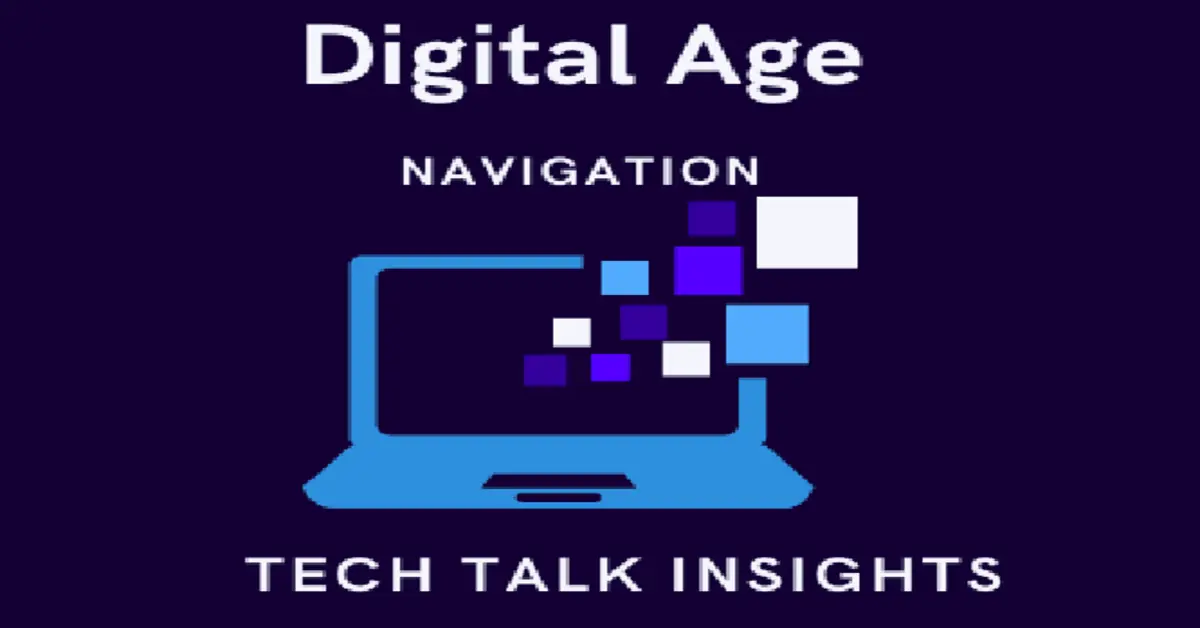Welcome to the Digital Age, where the world is at your fingertips, and technology has profoundly transformed the way we live, work, and communicate in the Digital Age. This era, often referred to as the Information Age, has witnessed a rapid integration of digital technology into nearly every aspect of our lives, reshaping industries, and altering the very fabric of our society.
Table of Contents:
- The Digital Age: An Overview
- Digital Age Transformation
- Impacts of the Digital Age
- Navigating the Digital Age Successfully
- FAQs
- Conclusion
The Digital Age: An Overview
The Digital Age is defined by the ubiquity of digital technology and the internet in our daily lives. It’s marked by the democratization of information, where individuals worldwide can access, share, and contribute to knowledge more easily than ever before. Key characteristics of this era include:
-
Global Connectivity: The internet has become a global bridge, connecting people, businesses, and governments across borders. It has transformed how we access and share information.
-
Digital Devices: From smartphones and tablets to smartwatches and Internet of Things (IoT) devices, digital technology is an integral part of our existence.
-
Social Media: Platforms like Facebook, Twitter, and Instagram enable us to communicate, share experiences, and build communities in the digital realm.
Digital Age Transformation
The Role of Technology
Digital technology has infiltrated every corner of our lives. In the Digital Age, it’s not just about staying connected or being entertained; it’s about the practical applications that are changing industries.
Healthcare: Telemedicine and wearable health tech have revolutionized patient care, making it more accessible and convenient. Patients can now monitor their health and consult with doctors from the comfort of their homes.
Education: Online learning platforms have opened the door to quality education for people all around the world. The Digital Age has democratized education, making it possible for anyone to acquire new skills and knowledge.
Internet and Connectivity
The internet, often called the backbone of the Digital Age, has enabled a level of connectivity that was previously unimaginable. It has reshaped commerce, communication, and culture.
Global Commerce: E-commerce giants like Amazon and Alibaba have redefined the way we shop. They provide access to a vast array of products and services, offering unparalleled convenience.
Remote Work: The Digital Age has made remote work not just possible but highly practical. With the right digital tools and connectivity, many employees can now work from anywhere in the world.
Social Media and Communication
Social media platforms are a hallmark of the Digital Age, transforming the way we interact with others and engage with the world.
Personal Connection: Social media has brought friends and family closer together, regardless of geographical distances. It enables us to share life moments, whether it’s a wedding, a vacation, or a simple dinner.
Professional Networking: For professionals, platforms like LinkedIn have made networking and job hunting more efficient. It’s now easier to find job opportunities and connect with like-minded individuals.
Impacts of the Digital Age
Positive Impacts
1. Accessibility
The Digital Age has democratized access to information. Anyone with an internet connection can access a wealth of knowledge, making education and self-improvement more accessible in the Digital Age.
2. Efficiency
Digital tools and automation have streamlined business processes, leading to increased productivity and cost savings in the Digital Age.
3. Innovation
The Digital Age has fostered innovation, giving rise to startups and tech giants that create products and services that enhance our lives in the Digital Age.
Negative Impacts
1. Privacy Concerns
With the digital world collecting vast amounts of data, concerns about privacy and data security have arisen in the Digital Age.
2. Digital Addiction
Excessive use of digital devices and social media can lead to addiction and adverse mental health effects in the Digital Age.
3. Job Disruption
Automation and artificial intelligence have raised concerns about job displacement, particularly in certain industries in the Digital Age.
Navigating the Digital Age Successfully
Digital Literacy
To thrive in the Digital Age, it’s essential to be digitally literate. This means understanding how to use digital tools, critically evaluate online information, and protect your digital identity in the Digital Age.
Adaptability
Embracing change is crucial in the Digital Age. Businesses and individuals need to adapt to new technologies, market trends, and consumer preferences in the Digital Age.
Cybersecurity
Protecting your digital presence is vital in the Digital Age. Implement strong cybersecurity measures to safeguard your data and privacy in the Digital Age.
Balance
Striking a balance between online and offline life is essential in the Digital Age. Overexposure to the digital world can have negative consequences in the Digital Age.
Conclusion
The Digital Age has completely changed the way we go about our daily lives, do our jobs, and talk to each other. By embracing digital literacy, adaptability, and cybersecurity, individuals and businesses can successfully navigate the challenges and opportunities of the Digital Age. While the Digital Age has its challenges, it also offers unprecedented opportunities for growth and innovation. Stay informed, be mindful of your digital presence, and you can harness the power of the Digital Age to your advantage in the Digital Age.
FAQs
1. What are the key characteristics of the Digital Age?
The key characteristics of the Digital Age include widespread internet connectivity, digital technology adoption, and the use of social media for communication and networking in the Digital Age.
2. How has the Digital Age impacted businesses?
The Digital Age has revolutionized business operations, enabling global reach, automation, and data-driven decision-making. It has also created new business models and opportunities in the Digital Age.
3. What are the challenges of the Digital Age?
Challenges include data privacy concerns, digital addiction, job disruption, and the rapid pace of technological change in the Digital Age.
4. How can individuals protect their online privacy in the Digital Age?
To protect online privacy, individuals should use strong, unique passwords, enable two-factor authentication, and be cautious about sharing personal information online in the Digital Age.
5. What is the future of the Digital Age?
The future of the Digital Age will likely involve advancements in artificial intelligence, augmented reality, and the continued integration of technology into various aspects of our lives in the Digital Age.





Hi Neat post There is a problem along with your website in internet explorer would test this IE still is the market chief and a good section of other folks will pass over your magnificent writing due to this problem